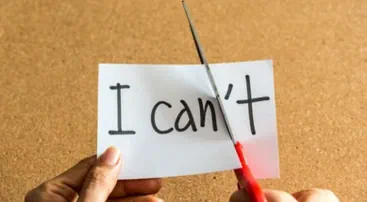
Boost Your Brain Power
Your brain powers everything you do. It makes sense to ensure your brain is working well to serve you well. Let's marvel for a moment about some brain facts.
- Human brains weigh about 3 pounds (1½ kgs) and are 60% fat - the fattiest organ.
- The brain takes about 20% of all your energy and generates up to about 23 watts of power (a light bulb).
- There are roughly 100 billion neuron brain cells each with 10,000 synapse connections to other neurons.
- These connections shape our thinking and memories.
- The connections move about a lot when we are young and slow as we age. This is called plasticity.
- Considerable synapse pruning takes place in adolescence as the brain selects preferred behaviors.
- Genes (nature) and experience (nurture) affect brain development but now the chaotic development of synapse connections (beyond the control of genes) is seen as making us part of who we are. So identical twins can think quite differently.
- You are never set in your ways. Brain plasticity slows but remains effective at any age if you choose to change.
Let's say you want to make a change in your life and acquire some skill. You may have heard the rule that it takes 10,000 hours to become an expert in something. Of course, this is just some number plucked out of the air. Well five years at 40 hours a week is a long time and that is the point. It takes a long time to tune your thinking or align your mind and body in a sport. So, what can you do to help your brain get where you want it to go?
Health: Your brain, like the rest of your body, functions best when you are healthy. The cornerstones of health are sleep, a healthy diet and exercise. Exercise gets blood and nutrients to the brain. Tests have shown people perform better mentally when they exercise compared to not exercising. It is also recognised as being good for your mental health. Getting enough quality sleep is very important for brain functioning. If you tried to go nine days without sleep you would die. Even one bad sleep is detrimental. A survey showed that people who live longest sleep for 7 hours a night with life expectancy curving down either side of this. Standard advice is for adults to get 7 to 9 hours sleep. Apart from sleep duration, sleep is best done at night, in peaceful conditions when you are comfortable. Exercise helps sleep quality so long as it is not just before sleep.
Eating a healthy diet is good for your whole body as well as your brain. A varied diet is always best but some foods get special call out for brain health. Omega-3 fatty acids found in fatty fish like salmon, sardines and mackerel has been seen to have positive effects on the brain which may not be surprising as a lot of the brain is made from this fat. Other foods tend to be antioxidants or anti-inflammatory. Think coffee, blueberries and turmeric as a concentrated supplement. Coffee has caffeine of course which is also good for alertness, mood and concentration (3 - 4 cups a day). Some other good ones are eggs, broccoli, dark chocolate and nuts. Short starving or at least low-calorie days has been shown to boost neuron creation, so along with the other weight/fat management benefits this could be healthy.
Having regard to the things mentioned in this health section will not only help you have clearer thinking and memory but also protect against, or help with, mental conditions including depression and anxiety. They will push back the effects of aging too.
Focus: Stop any obvious distractions. Social media and the media have developed very powerful distraction algorithms personalized to us. Put limits on your engagement with these. Get back your life and your objectives. Say 'no' to people as much as you need to prioritize yourself. You can add relevant distractions like music (for some people), colors and doodles. These can ease you into a relaxed state of concentration (see In the Zone). Things like meditation and yoga can set you up nicely to focus but they do not work for everyone. As mentioned, caffeine in coffee can give you a more alert concentration. If you were focusing but lose it then take a break.
Agility: The brain is like a muscle in that if you don't use it you lose it. If you want to keep your brain fit, you need to think about continual learning. There are brain training apps but they are narrow in what they test. Your brain has many attributes that can be developed like memory activities, decision making, logic, spatial reasoning and building associations. Playing a variety of games can help in any of these areas. Also, skill learning has been shown to help overall thinking ability beyond the skill itself. Skills examined include language learning, reading, playing a musical instrument and higher education.
Learning: There is no danger of filling up our brains with learning. The more you have and the more associations you make between bits of information the more likely you are to remember them. So, the first learning tip is to connect new ideas to things you already know. This will allow your brain to find multiple ways to get to the information. To make the pathways to the new learned information stronger requires repetition. A good idea after having learned something, and maybe a short break, is to describe to yourself just what you have learned. Repeated rehearsal and testing forces you to recall the learning which makes the memory stronger. If you can teach someone what you know, this will deepen your understanding. Try addressing your subject in multiple ways. For instance, if you are learning a language, read it, write it, listen to it and practice talking it. This will engage different parts of the brain with more opportunities to store the information. Making mistakes while learning is not a bad thing and reviewing them will help with critical thinking. Finally, taking short breaks during learning is beneficial to allow the brain to absorb new ideas.
Creativity: Brains are naturally creative. If you get all the relevant information together on a problem you are trying to solve and then go and do some not very stimulating activity (not total relaxing), then ideas will form in your subconscious. Creativity happens when we are not trying to think hard. We easily fill every minute of our lives doing something these days. To help creativity allow yourself some down time each day with no media inputs and let your mind wander. If you want to bring more radical thinking to a subject then try approaching the subject with left field questions like, what if I had $1 million to invest in this? Or, how is this similar to a snail? (the list is endless). Or, reframe and consider ways to enlarge, reduce, reverse or eliminate. Or, look at your issue with different hats on like, a critic, an optimist, an emotional person, a details factual person, a big picture person, etc. Working with other creative people and brainstorming can get creativity flowing. Creative thinking is a skill that can be learned.
Timing: Science tells us that the best time to focus on things is from mid-morning to lunch and then from 4pm to 10pm. Other times are best used for creativity, social or admin.
In the Zone: An expert at the top of their game effortlessly executes their skill. They are in the zone. What are the characteristics of being in the zone? 1) A focus that makes you lose sense of time; 2) A sense that your skills are matched so you are neither frustrated or bored; 3) Automaticity - the sense that "the piano is playing itself" for example. So, how can we accelerate becoming an expert without spending 10,000 hours practising. 1) Find an external focus like the water going around you as a swimmer rather than your limb movements; 2) Conjure the zone sensation in your head (alpha waves) when performing a skill - lower heart rate and breathing; 3) Transcranial direct current stimulation (tDCS) has been shown to make the brain susceptible to focused learning but is still experimental.

